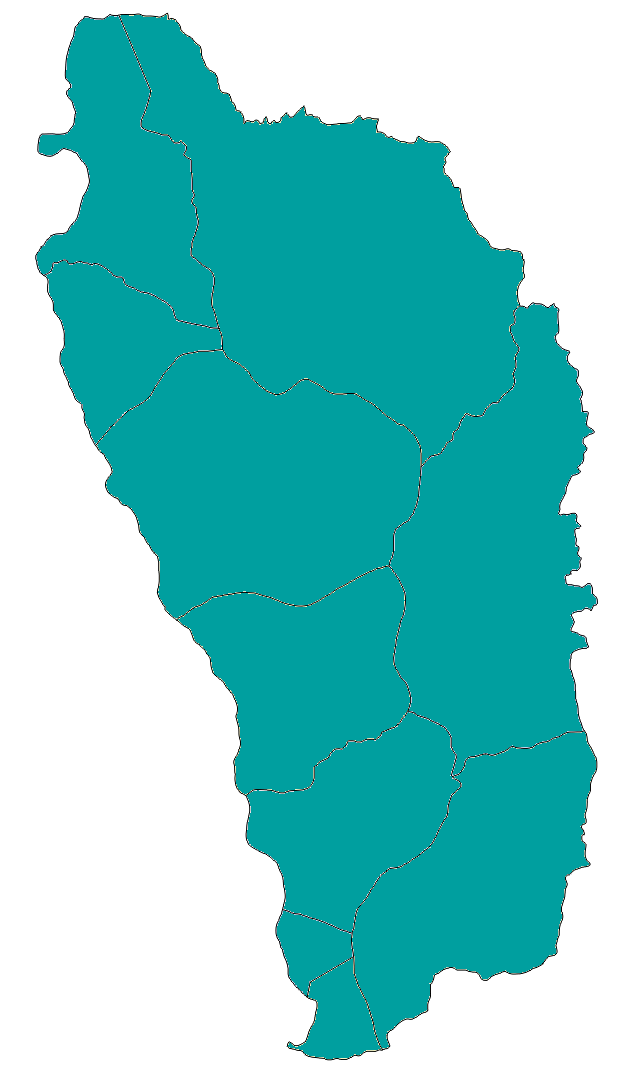Import Regulations in Dominica for Japan Used Cars
Restriction in Number of Years:
Max. 5 years old
Shipping Ports:
Roseau
Shipment Time:
RoRo (24-34 Days)
Shipping Schedule:
RoRo (Monthly)
Shipping Line:
CNC Japan (ECL)
Inspection:
No Inspection

Right-hand drive vehicles are permitted for import from Japan.
TAXATION
- 40% of the customs value will be imposed as import duty for importing Japan used vehicles.
- 3% of the customs value will be imposed as a Customs Service Charge (CSC).
- $3000 per unit will be charged on the import of motor vehicles which have been manufactured at least 5 years ago as an environmental surcharge. For the vehicles which have been manufactured within 5 years before import, 1% of the customs value will be charged as an environmental surcharge.
- 28% of the customs value including import duty and Customs Service Charge will be imposed as an excise tax. For diplomats, exemption on the import of vehicles is given.
- 15% of the customs value including import duty, CSC, and excise tax will be imposed as Value Added Tax (VAT).
- Registration and ownership proof.
- For gasoline vehicles that are below 1600cc and the diesel vehicles that are below 1500cc and are not more than 5 years old, a 20% import duty is implied.
- For gasoline vehicles that are below 1600cc and the diesel vehicles that are below 1500cc and are not less than 5 years old, a 40% import duty is implied.
- For gasoline vehicles that are above 1600cc and the diesel vehicles that are above 1500cc, a 40% import duty is implied.
DOCUMENTS REQUIRED FOR IMPORT OF VEHICLES
- Driver’s license (original)
- Insurance policy and certificate
- Bill of Lading (original)
- Title and Registration certificate (original)
- Commercial Invoice (original)
- ASYCUDA Bill of Lading
- Bill of Sale
- Foreign registration papers
- Export documents
- Police registration certificate
- Consular invoice of Dominica which has been stamped by the Dominican consulate
- Payment proof
- Certificate of Cancellation from Japan
PROCEDURE FOR CUSTOMS CLEARANCE
- The IM4 Customs Declaration will be assessed by the broker or tariff clerk using ASYCUDA along with other documents such as invoice and Bill of Lading.
- After the assessment of the declaration, duties and taxes are needed to be paid to the customs cashier. A copy of Assessment Notice is required to be presented to the customs cashier and a receipt of payment is to be obtained.
- Next, the valuation of the declaration will be done electronically by an examining officer. Then the verification of declaration and other documents and physical examination of the used vehicle from Japan will be done.
- The examining officer will then verify the declaration and print the release order for the import of Japan used vehicles.
- The broker or tariff clerk will then be notified by the system about the verification and release of the declaration.
- The release order can now be collected from the examining officer and presented to DASPA for the export of the vehicle from Japan.
IF CONCESSION IS APPLICABLE ON THE IMPORT OF VEHCLES
The fiscal Department is responsible for providing concessions on import of the vehicle or the duty-free import. A letter or FTI 101 from is required to be presented for availing concession.
PROCEDURE
Assessment of the declaration in ASYCUDA is need be done by the broker or tariff clerk and the taxes are required to be paid.
Next, registration for the vehicle is required to obtained from the inland revenue department and presented to the Fiscal incentives Officer.
The Fiscal incentives Officer will now release the declaration. The importer can now go for the valuation and clearance process of the vehicle can be completed.
The vehicle exported from Japan can be placed in a warehouse or bond after its import in Dominica to avail concession in the duties and taxes. The importer of the vehicle is required to get written permission from the Comptroller of Customs office to keep the vehicle in the bond. Used vehicles from Japan with more than 10 years of age require authorization from the Comptroller to be placed in bond. After the approval is received, the broker can proceed for the clearance process. A customs officer will accompany the imported vehicle to the approved bond or warehouse. The customs will secure the keys of the warehouse.
RETURNING RESIDENTS
WHO ARE CONSIDERED AS RETURNING RESIDENTS?
- have returned permanently to Dominica
- are 18 years or older
- A Dominican citizen by birth
PROCEDURE FOR IMPORTING VEHICLE BY RETURNING RESIDENTS
- Proof of ownership of the vehicle is required to be presented by the returning residents when the vehicle has been imported to Dominica from Japan.
- All the receipts and invoices should be presented to the customs officer when asked.
- The importer must have lived in Japan continuously for at least 7 years right before returning to Dominica to be able to import the vehicle.
CONDITION FOR RETURNING VEHICLE IN DOMINICA FOR THE RETURNING RESIDENTS
- There would be an agreement between the returning resident and the Comptroller of Customs.
- Returning residents can not trade, sell, dispose, or give the vehicle away for 5 years unless all the applicable duties and taxes are paid.
- If the necessary duties and taxes are not paid, he/she can sell or trade the vehicle after 5 years. For this, an approval from the Minister of Finance is required which is given after consulting the Comptroller of Customs.
- If the returning resident has to leave Dominica for 6 months or less, then he/she must inform the Comptroller of Customs regarding the vehicle’s custody.
- If the returning resident has to leave Dominica for 6 months or more, then he/she will have to pay for all the applicable duties and taxes.
- The Financial Secretary may give exemption in duties under special circumstances.
